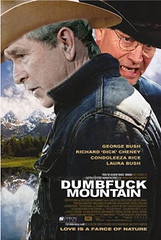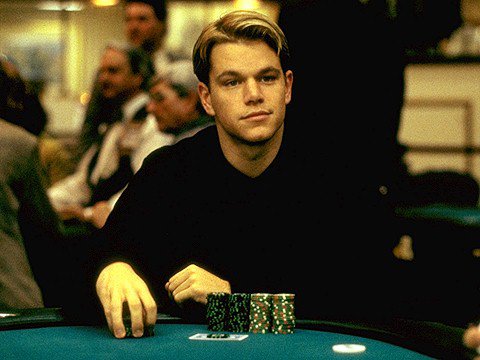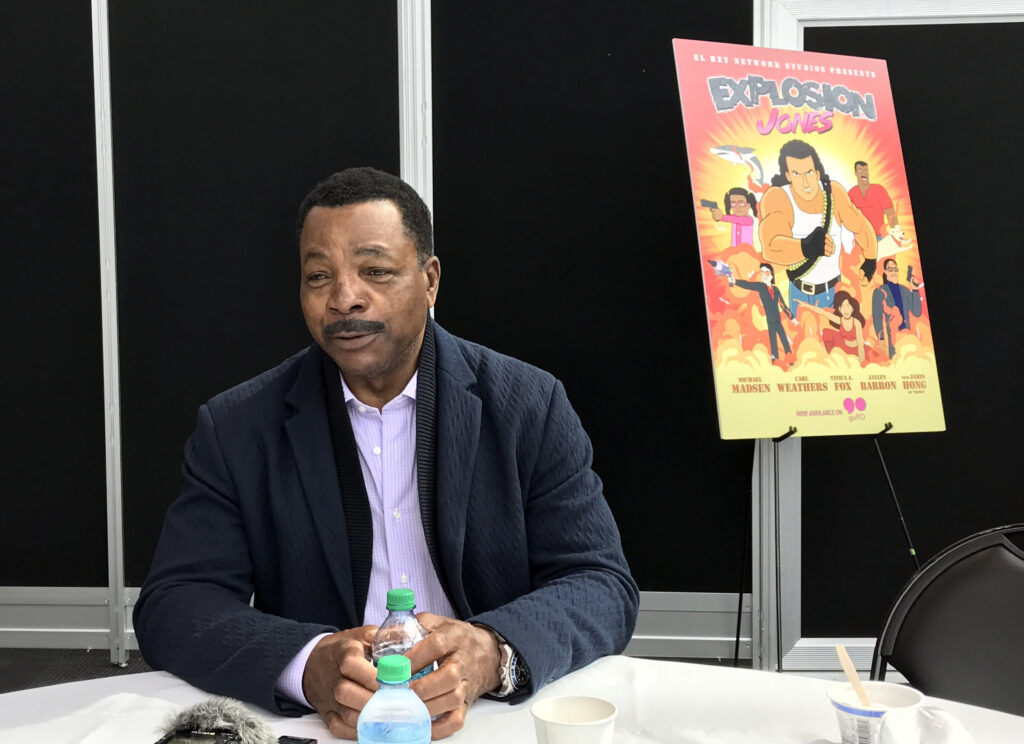
The “Rocky” franchise stands as a colossal pillar in cinematic history, a testament to the enduring power of the underdog spirit. From Sylvester Stallone’s initial vision of a struggling boxer named Rocky Balboa, it blossomed into a global phenomenon, captivating audiences with its raw emotion, thrilling action, and unforgettable characters. These films, from the original 1976 classic to the recent “Creed” sequels, have consistently delivered narratives of perseverance, friendship, and the fight for self-worth, etching their way into the hearts of millions.
Over the decades, the world of Rocky Balboa has introduced us to a vibrant array of personalities, each one contributing to the rich tapestry of the narrative. Whether it was a loyal trainer, a formidable opponent, a supportive family member, or a behind-the-scenes force, these actors brought a unique magic to the screen, making us cheer, cry, and believe in the impossible. Their portrayals breathed life into characters that have become cultural touchstones, symbols of hope and resilience for generations of fans.
However, as time marches on, the cinematic family we’ve come to cherish also faces inevitable losses. This article serves as a heartfelt tribute, a moment to pause and reflect on the incredible talents of the cast members who have sadly passed away since the original “Rocky” film’s release. We celebrate their lives, their unforgettable performances, and the indelible mark they left on one of the most beloved movie franchises of all time, ensuring their legacies continue to inspire.
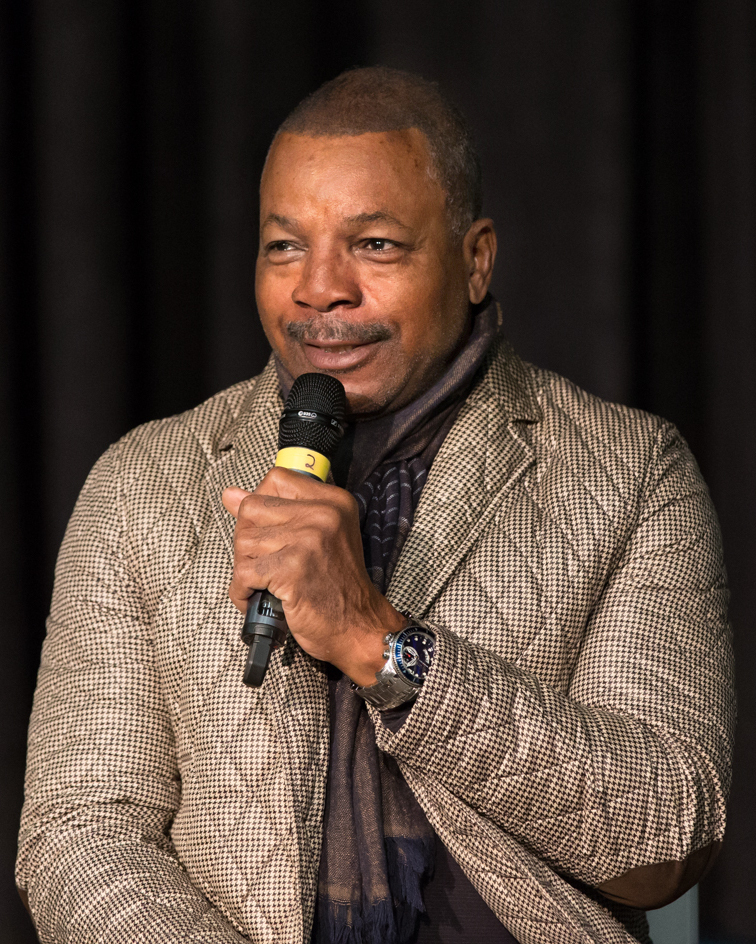
1. **Carl Weathers (Apollo Creed)**: Few characters in cinematic history possess the charisma and impact of Apollo Creed, brought to life with unparalleled swagger by the late Carl Weathers. As Rocky’s initial nemesis turned steadfast friend, Weathers embodied the “Master of Disaster” with a potent blend of athleticism, charm, and dramatic depth. His portrayal was so iconic that Sylvester Stallone famously based the character on the legendary Muhammad Ali, capturing Ali’s handsomeness, powerful physique, and undeniable gift of gab.
Weathers reprised his role as the heavyweight champion in three sequels, with Apollo’s tragic death in “Rocky IV” remaining one of the franchise’s most emotional moments. Even after his character’s passing, Weathers’ influence permeated the series, most notably in the “Creed” trilogy. These films revolve around Apollo’s grown son, Adonis Johnson, and his journey to live up to his iconic father’s legacy, a testament to the enduring power of Weathers’ performance.
Beyond the boxing ring, Carl Weathers was a fixture of film and television for decades, showcasing his versatile talent in a wide range of roles. He starred in 1980s action classics such as “Predator” and “Action Jackson,” where his powerful screen presence was undeniable. Weathers also delighted audiences by gleefully parodying his macho persona in comedies like “Happy Gilmore,” “Arrested Development,” and even lent his voice to “Toy Story 4,” demonstrating his impressive range.
In the 1990s, Weathers transitioned behind the camera, building a solid resume as a television director, further cementing his artistic versatility. His directorial credits include two episodes of the Disney+ hit “The Mandalorian,” where he also had an Emmy-nominated supporting role, proving his talent extended far beyond acting. Sadly, Carl Weathers passed away in his sleep in February 2024 at the age of 76, with his family announcing his death was due to atherosclerotic cardiovascular disease.
His passing left a profound void in Hollywood and in the hearts of “Rocky” fans everywhere, but his legacy as Apollo Creed and a multifaceted entertainer will undoubtedly endure. Carl Weathers was more than just an actor; he was an inspiration, embodying strength, charisma, and a spirit that will continue to resonate through his timeless work.
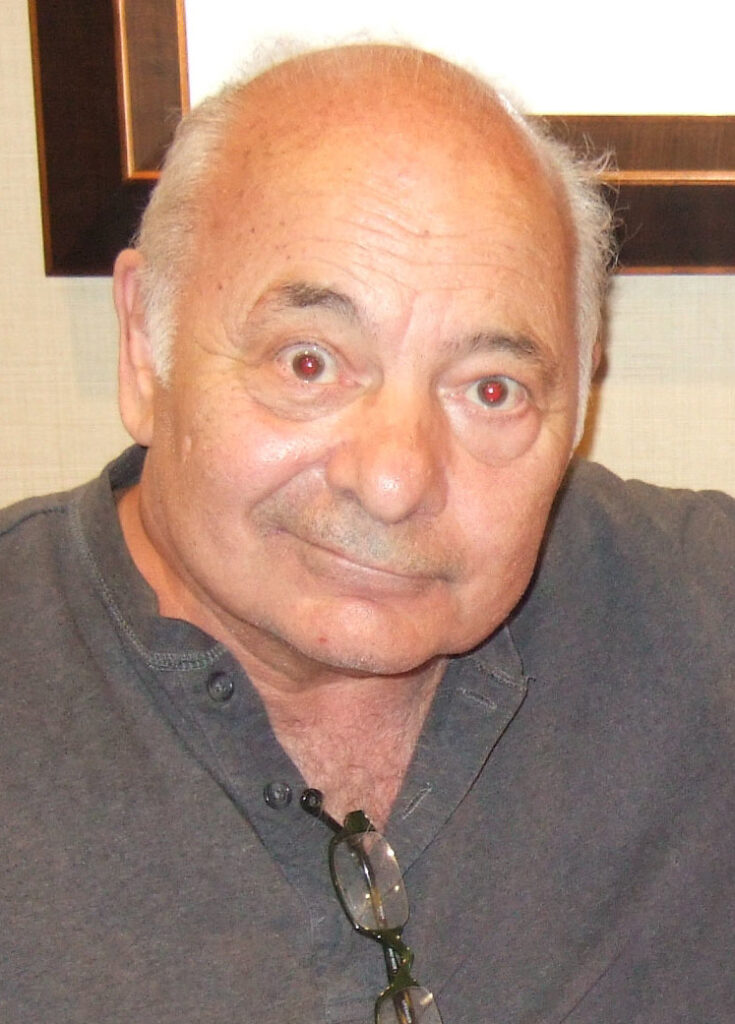
2. **Burt Young (Paulie Pennino)**: Burt Young, the Oscar-nominated actor, carved an unforgettable niche in cinematic history as Paulie Pennino, Rocky Balboa’s flawed yet profoundly loyal brother-in-law and corner-man. Young appeared in all six of the original “Rocky” films, from the 1976 debut to the 2006 legacy sequel “Rocky Balboa,” becoming an integral part of the franchise’s emotional core. His portrayal of Paulie was a masterclass in character acting, earning him a best supporting actor nomination at the 1977 Oscars.
Paulie’s character arc was one of the franchise’s most compelling, evolving from an angry, foul-mouthed meat packer in the first film to a more softened, often humorous, presence in later installments. He was initially abusive towards his shy sister, Adrian, but his genuine affection for Rocky, even if begrudgingly shown, was always palpable. As the films progressed, Paulie provided much of the comic relief, famously reprogramming a robot in “Rocky IV” and expressing constant pessimism about Rocky’s chances, only to be surprised by his resilience.
Sylvester Stallone personally sought out Young for the role, recognizing his authenticity and real-life boxing experience. Young himself lauded Stallone’s writing, stating, “I thought the script had the cleanest street prose I’d ever read.” He admired Stallone as “a genius who is always looking three years ahead” and praised his “real eyeball for what’s going on in the world.” This shared respect translated into powerful on-screen chemistry that cemented Paulie’s place in the “Rocky” universe.
Young’s connection with Talia Shire, who played his on-screen sister Adrian, was particularly poignant. He later confessed to being “in love with Tally,” making their dramatic scenes together challenging to endure. A deleted scene from “Rocky Balboa” further showcased Young’s emotional depth, where Paulie openly grieved the loss of Adrian, a moment that underscored the character’s hidden vulnerability and the actor’s profound talent. Though his character’s fictional end in “Creed” was merely a headstone, marking his passing in 2012, his presence was sorely missed.
Beyond his iconic “Rocky” role, Young was a prolific actor with credits in acclaimed films like “Chinatown” and “Once Upon a Time in America,” as well as a memorable appearance in “The Sopranos.” He was also an accomplished painter and sculptor, with his artwork reflecting a rich inner world that mirrored the authenticity he brought to his characters. Burt Young passed away on October 8, 2023, at the age of 83 in Los Angeles, prompting a touching tribute from Sylvester Stallone: “To my Dear Friend, BURT YOUNG, you were an incredible man and artist, I and the World will miss you very much… RIP.”
3. **Burgess Meredith (Mickey “Mick” Goldmill)**: When one thinks of the heart and grit behind Rocky Balboa’s ascent, the gruff but lovable figure of Mickey “Mick” Goldmill immediately comes to mind. Veteran actor Burgess Meredith delivered an unforgettable performance as Rocky’s first trainer, a role that resonated deeply with audiences and earned him an Academy Award nomination for Best Actor in a Supporting Role in “Rocky.” His character’s passionate speeches and unwavering belief in Rocky provided some of the franchise’s most iconic moments.
Mickey’s journey with Rocky spanned “Rocky,” “Rocky II,” and “Rocky III,” where his character sadly passed away during the events of the third film in 1982. Despite his character’s fictional demise, Meredith made a poignant return to the franchise in flashbacks during “Rocky V” in 1990, reminding viewers of his enduring importance to Rocky’s story. His presence, even in memory, was a powerful force guiding the Italian Stallion.
Meredith was already a legend in the industry long before he donned Mickey’s trademark fedora. Born in 1907, he was in his 60s during the filming of the first “Rocky” in 1976 and had a distinguished career that dated back to Hollywood’s Golden Age. With an impressive 182 acting credits, he captivated audiences in diverse roles, including the famously villainous Penguin in the 1966 “Batman” TV series, showcasing his incredible versatility and range.
His extensive career also included a nomination for “The Day of the Locust,” highlighting his consistent excellence. Even long after his passing, his impact on his co-stars remained profound. Sylvester Stallone, in 2017, shared a photo of himself with Meredith on Facebook, touchingly stating, “I love this guy and miss him very much.” It was a sentiment shared by countless fans who admired Meredith’s talent and the indelible mark he left on cinema.
Burgess Meredith passed away in 1997 at the age of 89, leaving behind a legacy as one of Hollywood’s most respected and beloved actors. His portrayal of Mickey Goldmill remains a definitive part of the “Rocky” saga, a testament to the power of a mentor and the enduring impact of a truly gifted performer who poured his heart into every role.
4. **Tony Burton (Tony “Duke” Evers)**: For fans of the “Rocky” franchise, Tony Burton is synonymous with the no-nonsense, insightful trainer and cornerman, Tony “Duke” Evers. Burton first appeared in “Rocky” as Apollo Creed’s rough-and-tough trainer, meticulously preparing him for the intense heavyweight match against Rocky. He later reprised his role in “Rocky II,” guiding Apollo through their rematch, and continued to be a significant presence, even offering his wisdom to Rocky in “Rocky Balboa.”
Duke’s character evolved from solely Apollo’s trainer to a supportive figure for Rocky after Apollo’s death, symbolizing the deep bond formed within the boxing world. His intense presence and tactical advice were crucial in many of the franchise’s most iconic fights. Burton’s authenticity in the role was undoubtedly enhanced by his own history as a boxer, having won the Flint Golden Gloves title in both 1955 and 1957 before embarking on his acting career.
The legacy of Duke Evers continued into the “Creed” films, even though Burton himself was reportedly unable to see the first “Creed” due to health issues. In “Creed,” actor Wood Harris took on the role of Tony “Little Duke” Evers, Duke’s son, who became a trainer at Apollo’s Los Angeles-based boxing gym. Little Duke played a large role in “Creed II,” serving as Adonis Johnson’s full-time trainer alongside Rocky through both fights against Viktor Drago, extending the family’s presence in the series.
When Tony Burton passed away in 2016 at the age of 78, his “Rocky” co-stars were quick to acknowledge his contributions. Sylvester Stallone posted a photo of them together on Instagram, reflecting their bond. Carl Weathers, who played Apollo Creed, expressed his sadness on Twitter, noting that Burton’s “intensity and talent helped make the Rocky movies successful.” These heartfelt tributes underscored the profound impact Burton had on his colleagues and the franchise as a whole.
Burton’s portrayal of Duke Evers was more than just a supporting role; it was an essential part of the “Rocky” narrative, providing stability and wisdom in the chaotic world of professional boxing. His passing marked the loss of another beloved figure, but his spirit and memorable performance continue to inspire fans and aspiring trainers alike, forever etched into the annals of cinematic sports history.

5. **Sage Stallone (Rocky Jr.)**: In “Rocky V,” the audience was introduced to a new, pivotal character: Robert “Rocky” Balboa Jr., portrayed by Sage Stallone. As Sylvester Stallone’s eldest child from his first marriage, Sage made his acting debut in the 1990 film, stepping into the entertainment business alongside his famous father. His role as Rocky Jr. offered a poignant exploration of the challenges faced by the child of a legend, particularly a young man struggling to find his own identity amidst his father’s colossal shadow.
Sage Stallone’s performance captured the complex emotions of a son feeling neglected and misunderstood as his father’s focus shifted from family to training a new boxer. The on-screen dynamic between real-life father and son lent a powerful, authentic layer to the narrative, providing some of the film’s most emotionally charged scenes. It offered viewers a glimpse into the personal sacrifices that often accompany fame and career ambitions.
After “Rocky V,” Sage continued his acting career, appearing in multiple movies, including “Daylight” alongside his father, and “Moscow Zero.” He often gravitated towards the horror genre and also engaged in directing and producing endeavors, demonstrating a burgeoning interest in various facets of the entertainment industry. His decision to pursue other creative avenues led him to decline the opportunity to reprise his role as Rocky Jr. in “Rocky Balboa,” choosing instead to focus on his diverse career aspirations.
Instead, “This Is Us” actor Milo Ventimiglia took on the role of Rocky Jr. in both “Rocky Balboa” and “Creed II,” where father and son were reunited for what many consider to be an official send-off for Rocky Balboa’s character. However, Sage’s initial portrayal remains a significant part of the franchise’s history, showcasing his early talent and personal connection to the iconic story.
Tragically, Sage Stallone passed away suddenly in 2012 at the young age of 36. According to the Los Angeles County coroners, his death was attributed to atherosclerosis, which led to a heart attack. His untimely passing was a profound loss for his family, the film community, and fans, leaving behind a brief but impactful legacy in the cinematic world, particularly within the beloved “Rocky” saga.
6. **Thayer David (Miles Jergens)**: The intricate dance of putting together a blockbuster boxing match requires a shrewd operator, and in “Rocky,” that role was expertly filled by Thayer David as the fight promoter Miles Jergens. His character was pivotal to the entire “Rocky” saga, as he was the man responsible for orchestrating the initial, improbable exhibition match between the unknown Rocky Balboa and the reigning heavyweight champion, Apollo Creed. Without Jergens’ vision and persuasive skills, the underdog story might never have begun.
It took considerable convincing from Miles to secure agreements from both Rocky and Apollo for the exhibition bout, particularly the more hesitant Apollo. Jergens’ ability to see the spectacle and financial potential in such a matchup was the catalyst for the events that would define the entire franchise. David’s portrayal brought a sophisticated yet pragmatic edge to the character, making him a memorable, albeit brief, presence in the original film.
Thayer David was a seasoned veteran actor long before his appearance in “Rocky,” bringing a wealth of experience to the role. His career dated back to 1950, accumulating 62 acting credits across film and television. He was known for diverse performances, including his role as Count Saknussemm in the original 1959 “Journey to the Center of the Earth” and Professor T. Eliot Stokes in 1970’s “House of Dark Shadows.” These roles showcased his range and presence.
“Rocky” served as one of David’s final supporting roles in a feature film, underscoring its significance in his illustrious career. He passed away just two years after the film’s release in 1978, at the age of 51, with the cause of death being heart disease. His contributions to the theater and film community are remembered and celebrated by those who appreciated his craft and the numerous characters he brought to life.
His role as Miles Jergens, though not as physically present in the sequels, laid the crucial groundwork for the entire narrative. The initial spark he ignited between Rocky and Apollo echoed through every subsequent film, making Thayer David’s contribution to the “Rocky” universe truly foundational and unforgettable, a testament to the power of a single, well-crafted supporting performance. His legacy continues to be appreciated by fans who understand the intricate pieces that form a cinematic masterpiece.
The legacy of the ‘Rocky’ saga is undeniably built upon the shoulders of many talented individuals, not just the front-line stars. As we continue our poignant journey, we now turn our attention to six more integral cast members whose contributions, whether large or small, significantly enriched the narrative and texture of these beloved films. These actors, too, have left us, but their impact on the ‘Rocky’ universe and their broader careers ensure their memories endure, forever etched in the hearts of fans.
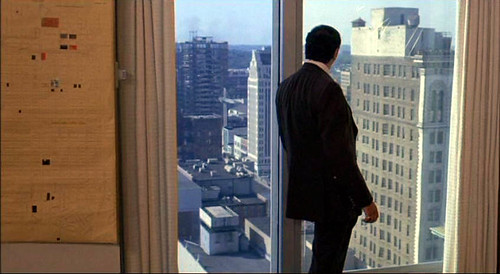
7. **Joe Spinell (Tony Gazzo)**Before Rocky Balboa climbed the ranks to boxing glory, he was a struggling young man in Philadelphia, navigating a life of sketchy jobs to make ends meet. One such job involved roughing up people who owed money to Joe Spinell’s character, Tony Gazzo, a figure who blurred the lines between a low-life criminal and a nuanced, almost paternal presence in Rocky’s early life. We first encounter Gazzo in the original “Rocky,” where he confronts Rocky for letting someone off easy, setting the stage for his complicated character.
Spinell reprised his role in “Rocky II,” where his character continued to offer Rocky dubious opportunities, such as attempting to get him to invest in real estate. Rocky wisely refused, instead passing the opportunity to Paulie, further cementing Gazzo’s role as a persistent, albeit sometimes misguided, presence in Rocky’s world. His interactions with Rocky often highlighted the precarious existence from which the future champion emerged, adding a gritty realism to the narrative’s backdrop.
Gazzo was a truly complicated figure, exhibiting traits of a street-level enforcer while simultaneously showing a surprising degree of care for Rocky. This was perhaps best exemplified when he loaned Rocky money to take Adrian out on a dinner date, a gesture that underscored a hidden layer of affection beneath his gruff exterior. While his fate was never explicitly detailed on screen, the novelization of “Rocky IV” noted his passing at some point before the events of that film, bringing a quiet end to his on-screen presence.
Beyond his memorable turn as Tony Gazzo, Joe Spinell was a prolific character actor with a significant presence in some of the most iconic films of the 1970s and 1980s. He left his mark in cinematic masterpieces like “The Godfather,” “The Godfather: Part II,” and Martin Scorsese’s gritty “Taxi Driver.” Spinell also famously starred in the ’80s horror film “Maniac,” showcasing his versatility. Sadly, Joe Spinell passed away in 1989 at the age of 52, with the cause of death listed as undetermined, leaving behind a legacy of impactful performances that elevated every project he touched.

8. **Sylvia Meals (Mary Anne Creed)**In the intense and often heart-wrenching world of the “Rocky” franchise, Sylvia Meals brought a quiet strength and dignity to the role of Mary Anne Creed, the wife of the legendary Apollo Creed. Her presence was pivotal, particularly in “Rocky II” and “Rocky IV,” where she bore witness to Apollo’s epic battles with Rocky, his rigorous training regimens, and ultimately, the tragic moment her husband succumbed to Ivan Drago’s power in the ring. Meals’ portrayal grounded the larger-than-life boxing drama in relatable human emotion.
The emotional depth of Mary Anne Creed’s character was further explored and expanded in the “Creed” films, where actress Phylicia Rashad took on the role. It was in these sequels that audiences gained a deeper insight into Mary Anne’s internal struggles and resilience. A significant revelation in “Creed” was her knowledge of Apollo’s infidelity, which resulted in the birth of Adonis, whom she lovingly took in and raised as her own, cementing her enduring compassion and strength.
Mary Anne’s character continued to be an important, anchoring presence throughout the “Creed” films, symbolizing the enduring family ties and complex legacies that defined Apollo Creed’s life. Her unconditional love for Adonis and her role in guiding him underscored her pivotal position within the extended “Rocky” family. Her quiet strength provided a crucial emotional backbone to the narratives of both the original films and their modern continuation.
While Mary Anne Creed remains her most recognized role, Sylvia Meals had a more limited, yet impactful, acting career. Her other credits included an appearance as Mrs. Collins in 2007’s “Tournament of Champions” and a role as Leslie in “The Cosby Mysteries” television series. Meals sadly passed away in 2011 at the age of 67, leaving behind a memorable performance that helped define the emotional stakes of Apollo Creed’s journey and his enduring family legacy.
9. **Tommy Morrison (Tommy Gunn)**”Rocky V” introduced audiences to a compelling new character, Tommy Gunn, a young, aspiring boxer who caught Rocky Balboa’s eye and became his protégé. Portrayed with undeniable authenticity by real-life professional boxer Thomas David Morrison, Gunn’s character added a fresh, if ultimately tragic, dynamic to the franchise. Morrison’s background in the ring lent incredible credibility to his portrayal of a fighter eager for glory, making his journey feel intensely real.
The film’s central conflict revolves around Tommy Gunn’s ascent under Rocky’s tutelage, a journey that soon sees him seduced by the allure of fame and fortune. His eventual turn against his mentor, choosing a more commercial path over loyalty, formed the emotional core of “Rocky V.” This betrayal ultimately culminates in a dramatic street fistfight between mentor and protégé, a raw and powerful confrontation that Rocky, ever the underdog, ultimately wins.
Beyond his acting debut in “Rocky V,” Tommy Morrison was primarily known for his impressive professional boxing career. He held the World Boxing Organization (WBO) title in 1993, a significant achievement that came after a notable fight against the legendary George Foreman. Foreman himself, reflecting on Morrison’s life after his passing, fondly remembered him as “just a good guy,” a testament to Morrison’s character both inside and outside the ring.
Morrison experienced a minor comeback in the mid-2000s, showcasing his enduring fighting spirit before finally retiring in 2008. He spent his retirement with family but sadly fell ill and passed away in 2013 at the young age of 44. His unique contribution to the “Rocky” series, embodying a boxer on screen with the true grit of a real-life champion, ensures that his performance as Tommy Gunn remains a poignant and impactful part of the franchise’s history.
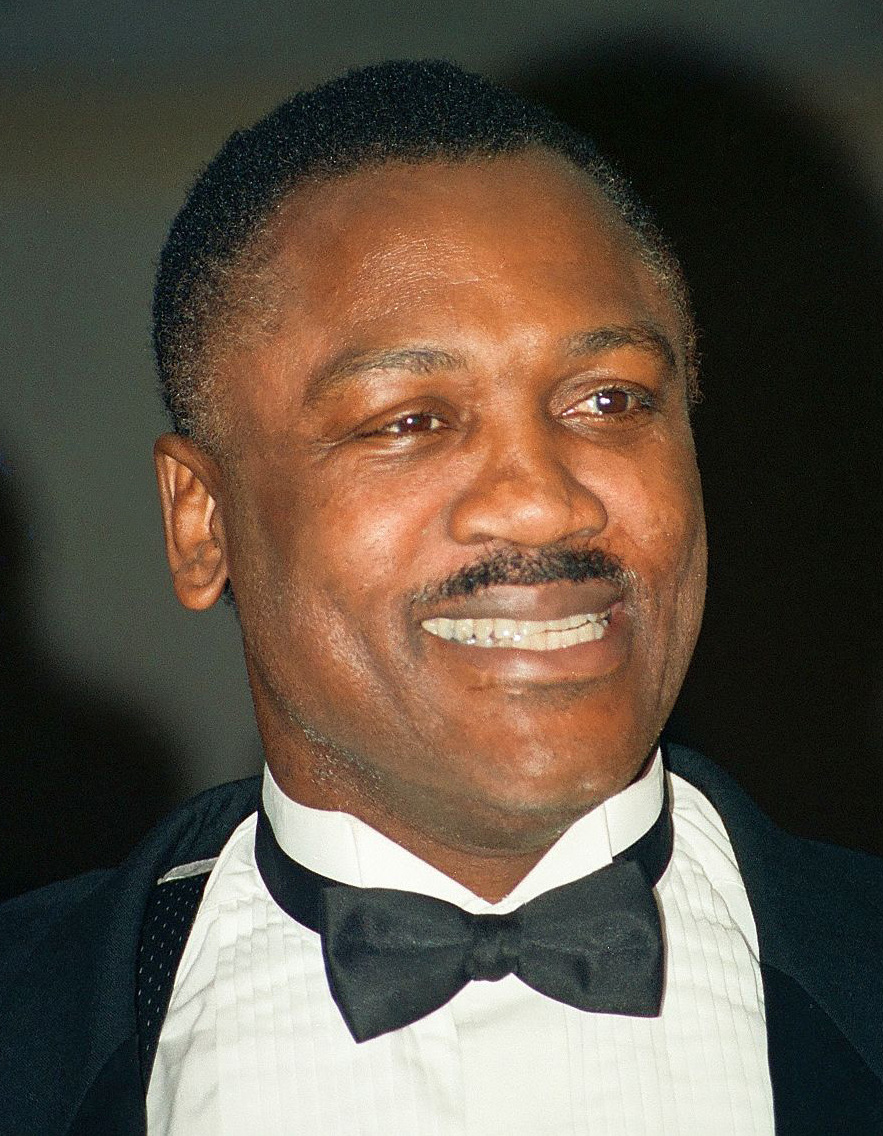
10. **Joe Frazier (Himself)**While the “Rocky” franchise is replete with fictional characters, it occasionally blurred the lines between fantasy and reality, most notably with the appearance of real-life boxing icon Joe Frazier. Frazier, who famously played himself in a cameo appearance, added an unparalleled layer of authenticity and reverence to the cinematic boxing world. His presence was not just a tribute to the sport, but a nod to the very legends who inspired the creation of characters like Rocky Balboa and Apollo Creed.
Joe Frazier’s professional boxing career, which spanned from 1965 to 1981, is etched into the annals of sports history. He holds the extraordinary distinction of being the first-ever boxer to defeat the legendary Muhammad Ali, a feat that cemented his status as one of the sport’s all-time greats. Furthermore, Frazier was the undisputed heavyweight champion from 1970 to 1973, a testament to his dominance and formidable skill in the ring.
His life story was one of sheer determination, raw talent, and unyielding spirit, making him a truly remarkable and inspirational figure in every sense. His powerful fighting style and unshakeable resolve resonated deeply with the themes of perseverance that define the “Rocky” saga. Frazier’s brief but memorable appearance served as a powerful reminder of the real-world grit and glory that the films sought to emulate and celebrate.
Joe Frazier passed away on November 7, 2011, leaving behind an enduring legacy that transcends the boxing world. His contribution to the “Rocky” franchise, though brief, was profoundly significant, reminding audiences of the real champions who inspired cinematic dreams. His powerful image and historical achievements continue to inspire, ensuring that “Smokin’ Joe” Frazier will never be forgotten.
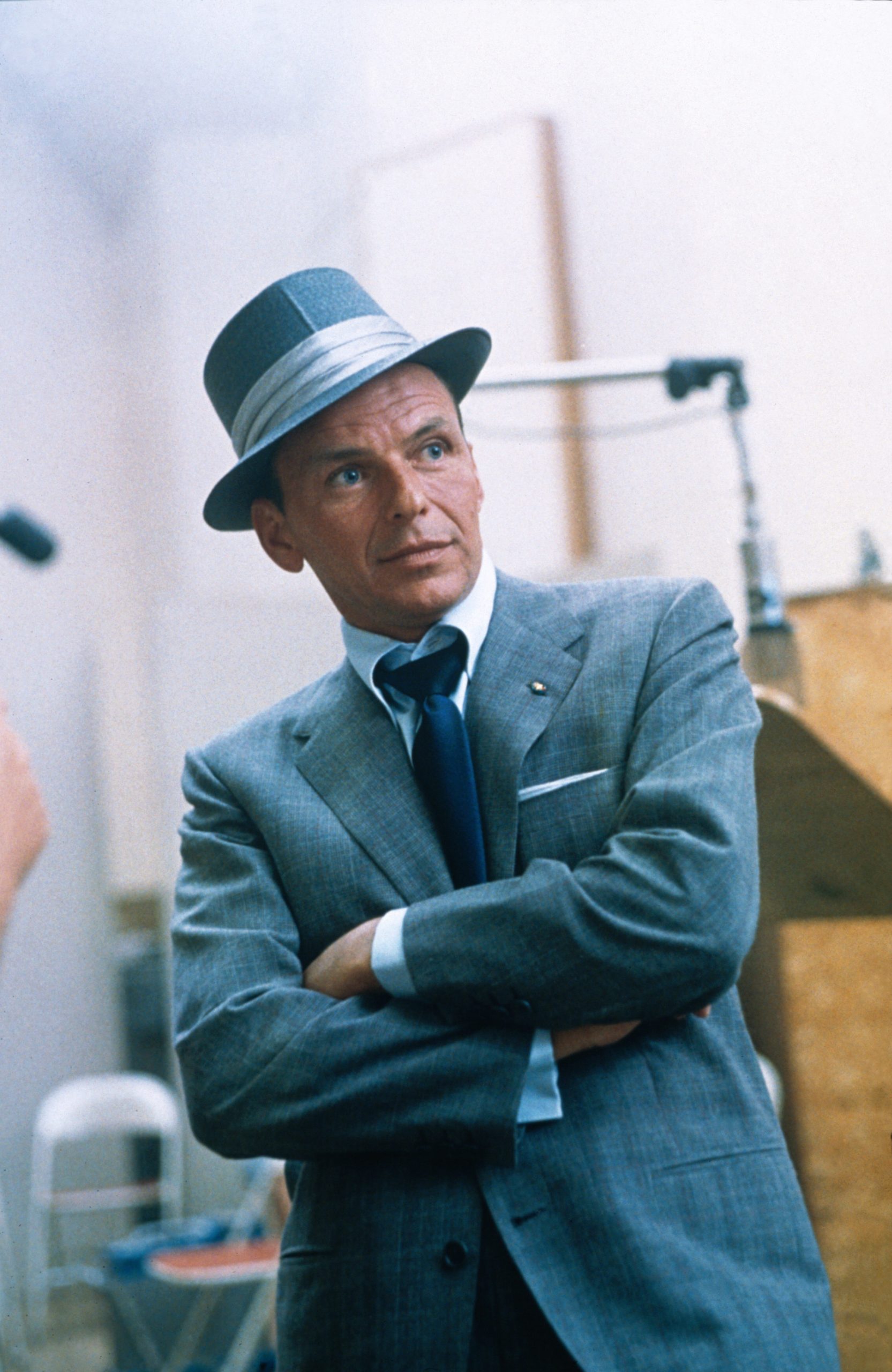
11. **Frank Stallone Sr. (Timekeeper)**In a delightful and uniquely personal touch, the original “Rocky” film featured Frank Stallone Sr., none other than the father of the movie’s star and writer, Sylvester Stallone. He made a memorable, albeit uncredited, appearance as the timekeeper in the iconic boxing match. This familial connection added an authentic, grassroots charm to the film, reflecting the close-knit community spirit that was so vital to Rocky’s underdog journey.
By profession, Frank Stallone Sr. was a hairdresser, a far cry from the glitz of Hollywood or the intensity of a boxing ring. However, he was persuaded by the filmmakers to appear in the movie, marking this as his only ever-acting gig. This unique circumstance underscores the passionate, almost DIY, spirit that infused the production of the first “Rocky” film, a true labor of love for all involved.
His presence, a real-life family member of the lead actor, contributed subtly to the film’s gritty realism and emotional depth. It’s a small detail that, for those in the know, adds an extra layer of warmth and authenticity to the narrative, embodying the idea that Rocky’s world was populated by genuine people, even those close to the creative force behind the film.
Born in 1919, Frank Stallone Sr. passed away in 2011, leaving behind a legacy not just as the father of a cinematic icon, but as a small yet significant contributor to a film that would captivate the world. He is survived by his two sons, Sylvester and Frank Stallone Jr., a musician, ensuring the Stallone name continues its diverse influence in entertainment.
12. **Simmy Bow (Club Corner Man)**Even in the vast tapestry of a cinematic classic like “Rocky,” there are countless individuals whose contributions, though seemingly minor, are essential to painting a complete and authentic picture. One such individual was Simmy Bow, credited as the ‘Club Corner Man.’ While his role might not have been central to the plot, his presence was integral to establishing the gritty, realistic atmosphere of the club boxing scenes, immersing the audience in Rocky’s humble beginnings.
Born Sam Labowitz, Simmy Bow brought an unquantifiable authenticity to the background of Rocky’s early world. As a ‘Club Corner Man,’ he was one of the many unsung figures who populated the smoky, intense boxing clubs where Rocky honed his craft. These characters, though often unnamed or with minimal lines, were crucial in making the boxing environment feel lived-in and genuine, supporting the immersive quality that defined the original “Rocky” film.
Beyond his brief but vital contribution to “Rocky,” Simmy Bow was indeed a stellar actor who graced the screen in several eminent movies. His versatility and presence allowed him to appear in a range of films, showcasing his talent in projects such as Tim Burton’s quirky “Beetlejuice” and the beloved cult classic “Pee-wee’s Big Adventure.” These roles demonstrate his ability to contribute effectively across different genres and production scales.
Simmy Bow passed away in 1987, just over a decade after the original “Rocky” film’s release. His passing reminds us to appreciate the breadth of talent, both foreground and background, that brings cinematic worlds to life. While many may not remember him by name, his work, whether as a club corner man or in other notable films, remains a part of Hollywood’s rich history, ensuring his legacy as a dedicated performer endures.
As the final bell tolls on this tribute, it’s clear that the “Rocky” franchise is more than just a series of boxing films; it’s a testament to the power of human spirit, perseverance, and the unforgettable characters who inhabit its world. Each actor we’ve remembered, from the leading roles to the crucial supporting figures, contributed a unique thread to this rich tapestry. Their performances continue to resonate, reminding us that while time may march on and loved ones may pass, the cinematic legacies they built will forever inspire and entertain. Their spirit, much like Rocky Balboa’s, continues to fight on, eternally cherished by fans worldwide.




